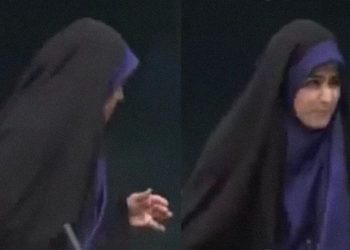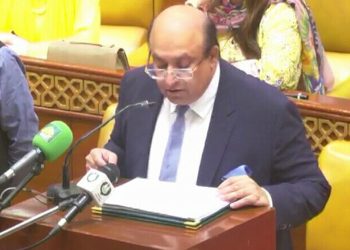Pakistani neuroscientist Dr. Aafia Siddiqui, who has spent over 20 years in U.S. prison, was not granted a presidential pardon by former President Joe Biden before he left office, despite widespread speculation. Dr. Siddiqui, convicted in 2010 for attempting to kill U.S. military personnel while in custody in Afghanistan, had hoped for clemency, but was not included in the list of pardons issued by Biden on his final day in office.
Reports indicate that Biden granted clemency to five individuals and commuted the sentences of two others on January 20, 2021, but Dr. Siddiqui was not among them. The five individuals pardoned included Darryl Chambers, Marcus Mosiah Garvey, Ravidath Ragbir, Don Leonard, and Kemba Smith. A White House spokesperson also confirmed that the sentences of two others were commuted.
In a press release, Biden explained his actions, stating, “America is a country built on the promise of second chances. I am exercising my clemency power to pardon five individuals and commute the sentences of two individuals who have demonstrated remorse, rehabilitation, and redemption.”
In the days leading up to Biden’s departure from the White House, Dr. Siddiqui expressed hope for a pardon, stating that she feared being “forgotten.” Through her lawyer, Dr. Siddiqui shared her distress with Sky News, saying, “I hope I am not forgotten, and I hope that one day soon I will be released. I am… a victim of injustice, pure and simple. Every day is torture… it is not easy.” She added, “One day, Inshallah (God-willing), I will be released from this torment.”
Dr. Aafia Siddiqui’s case has drawn significant international attention, with critics raising questions about the fairness of her conviction. The U.S. government accused Dr. Siddiqui of being a key figure in Al-Qaeda, claiming she was involved in a plot to attack U.S. military officials in Afghanistan. She was the only woman subjected to the controversial practice of extraordinary rendition, which involves transferring detainees to secret locations for interrogation, often under harsh conditions.
In 2010, a U.S. judge ruled that there was no credible evidence linking Dr. Siddiqui to any terrorism-related activities, but she was convicted on charges related to the incident in Afghanistan. Stafford Smith, a lawyer representing Dr. Siddiqui, has suggested that U.S. intelligence agencies misinterpreted her background, originally believing she was working on a radioactive bomb, when in fact, she held a PhD in education.
Despite her legal setbacks, Dr. Siddiqui’s supporters continue to advocate for her release, insisting that she has been unjustly imprisoned for more than two decades. However, with Biden’s refusal to grant her clemency, her legal battles are likely to continue as she remains behind bars under a cloud of controversy and calls for justice.


































